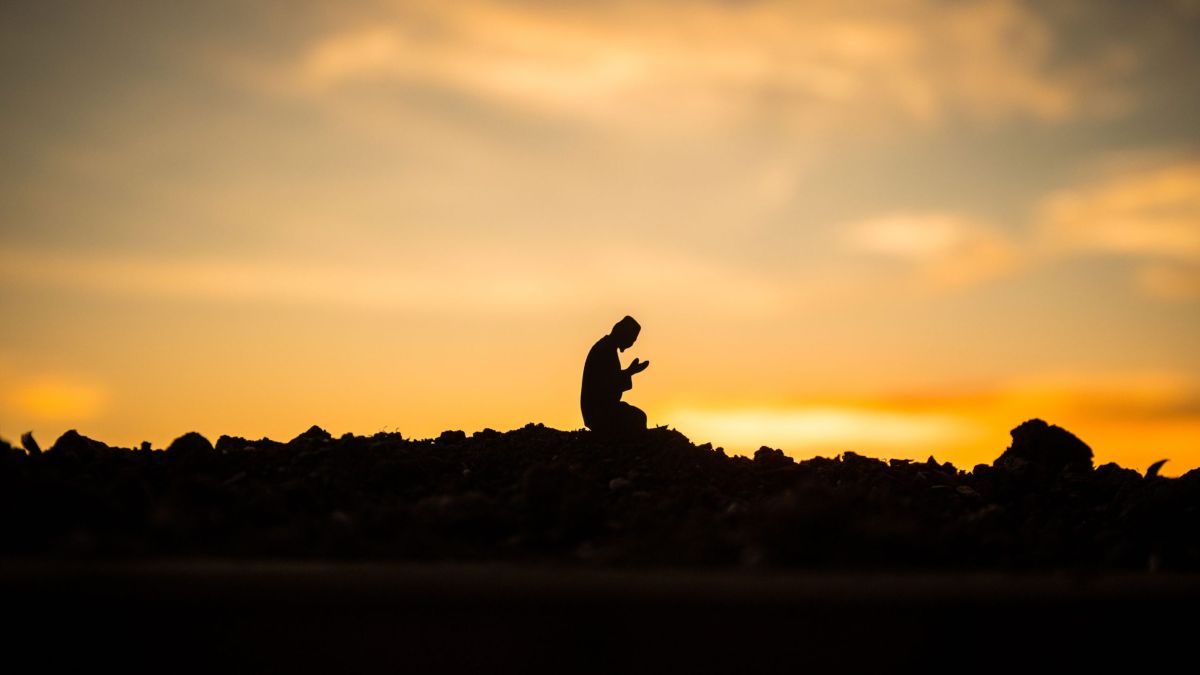The Ruling of Praying After the Appointed Prayer Time With and Without a Valid Excuse
Imām Muḥammad ibn Ṣāliḥ al-ʿUthaymīn


Performing Missed Prayers Immediately
It is obligatory for the one who misses the time of prayer to pray the ṣalāh he missed immediately. ‘Obligatory’ here refers to an action that has been commanded in a manner that denotes compulsion. ‘Immediately’, that is, as soon as possible without any delay. This applies to all prayers whose performance is associated with a particular time, regardless of whether that ṣalah is obligatory like the five daily prayers or supererogatory.
Evidence that Necessitates Immediate Performance of Missed Prayers
The evidence for the obligation of performing missed ṣalāhs is the saying of the Prophet (صلى الله عليه وسلم): “Whoever misses a ṣalāh due to sleep or forgetfulness must pray it when he remembers it.”1 Here, the directive to pray as soon as one remembers is narrated as a command. Commands stipulate obligation. Also, the one who misses a prayer is still responsible for its performance, so he must pray it. It is like a debt which he owes. As the Messenger (صلى الله عليه وسلم) said to the woman who asked regarding performing Ḥajj on behalf of her mother: “What do you surmise had your mother been in debt, would you not settle it? Settle that which is with Allāh, for He is more deserving of being recompensed.”2
The Two Opinions Regarding Delaying the Performance of Prayer With and Without an Excuse
The apparent meaning of the statement made by the composer [al-Ḥājūrī] is that there is no difference between the one who misses a prayer with a valid excuse and the one who does so neglectfully without an excuse, as far as both of them being obligated to perform what they missed. Such is the opinion of the majority of scholars: It is obligatory to perform any ṣalāh whose time was missed regardless of whether that ṣalāh was missed due to a valid excuse or otherwise. That is, even for the one who intentionally misses the time for prayer, we say: You are sinful but you still must perform the prayer you missed. This is the stance taken by the Four Imams, and by the majority of scholars.
The second opinion in this issue is if the time in which an act of worship is performed is missed due to a valid excuse, then it may be performed after its time. If, however, it is missed without a valid excuse, then it may not be performed. Not as a means of easing the burden of the one who intentionally delays it. Rather, as an exemplary punishment for the delayer, and as a means of showing enragement and displeasure associated with his action. For there is a difference between easing a burden and displaying enragement and displeasure for an act. Thus, we say to the one who has delayed the prayer intentionally: Do not pray it after its time. As, even if you were to pray it one thousand times, Allāh shall not accept it from you even if you were to sincerely repent. However, if you choose to repent then improve your future conduct.
Evidence for the Stance Taken by Scholarly Majority: The Prayer Must Be Made Up
As for the evidence provided by those who adopt the stance that he may pray it after its time even without an excuse, they use the following:
- The Prophet (صلى الله عليه وسلم) said: “Whoever misses a ṣalāh due to sleep or forgetfulness must pray it when he remembers it.” So, if the one who is excused due to sleep or forgetfulness must pray the ṣalāh he missed after its time, then it is even more befitting that one with no such excuse is also made to pray it.
- They say: His delaying of the ṣalāh until after its appointed time had concluded is representative of a debt which he owes. Debts are not subject to time constraints. Rather, a person should endeavour to settle what he owes as soon as he is able, even if its time has expired. If you had business dealings with another for which a sum of money was owed on the first night of Rabīʿ al-Awwal, then that night passed but you were unable to settle the owed sum, would you suddenly be absolved of the responsibility of paying it? The answer: of course not. Rather, the responsibility of settling it remains until you have paid what you owe, even if that occurs after the pre-specified, agreed-upon time. The Prophet (صلى الله عليه وسلم) has referred to acts of worship as a form of debt.3 So, if it is a form of debt, then it must be fulfilled, even if its original abandonment was inexcusable.4
Evidence for the Second Opinion in this Issue: Neglected Prayers Cannot Be Made Up
As for those who adopt the opinion that one may not perform the ṣālāh after its appointed time if one delayed its performance without a valid excuse, their evidence is the following:
- The time for the performance of this ṣalāh has been clearly specified, both the start and the end of its time period. These time limits form part of the characteristics that are attributable to it, as the Most High says:
إِنَّ الصَّلَاةَ كَانَتْ عَلَى الْمُؤْمِنِينَ كِتَابًا مَّوْقُوتًا
“Verily, the prayer is enjoined on the believers at fixed hours.”
(Al-Nisāʾ, 4:103)That is, they must be performed at these times. Thus, if one was to delay its performance without an excuse and then pray it after its time, he would have performed it in a manner that is different to the manner which was obligated and prescribed. In doing so, he has intentionally abandoned an obligatory aspect of it and so it shall never be correct. Just as if he was to intentionally pray it without being in a state of wuḍūʾ, his ṣalāh would be deemed incorrect.
- If he delays it until after its appointed time, he would have performed it in a manner that was not commanded. It has been authentically confirmed that the Prophet (صلى الله عليه وسلم) said: “Whoever engages in an act that is not from among our matter [of Islām] will have his act rejected.” This is an explicit, general, encompassing statement. He (صلى الله عليه وسلم) said ‘an act’, that is: any act. As the word used here lacks ‘the’ before it [‘an act’] and its context is one in which a prerequisite is being set [‘not from our matter’] which denotes generality [that is, any act]. ‘Will have his act rejected’: that is, unacceptable.
- There is complete agreement among the scholars that if he was to pray before the prespecified time intentionally, that ṣalāh would not fulfil his obligation. So, what is the difference between him intentionally praying it before the time or after it? Both acts are considered an affront to the clear limits set by Allāh—the Exalted in Might. In both circumstances, he would have extricated the act of worship from its proper time:
وَمَن يَتَعَدَّ حُدُودَ اللَّهِ فَأُولَٰئِكَ هُمُ الظَّالِمُونَ
“And whoever transgresses the limits ordained by Allāh, then such are the Ẓālimūn (wrong-doers, etc.).”
(Al-Baqarah, 2:229) - This person who delays the ṣalāh until after its appointed time is considered a wrong-doing transgressor and Allāh does not love the transgressors, nor the wrong doers. How, then, could it be correct to describe the one who is not beloved to Allāh due to his wrong-doing, transgressing nature as one who also seeks closeness to Him and is brought close? This is contrary to fair and equitable intellect and the natural disposition of man.
Weighing the Two Stances
As for their saying: The one who delayed its performance with an excuse must perform it after its time, so it is even more appropriate that the one without an excuse does so as well, this reasoning is nonsensical. This is because the one who has an excuse is not sinful as he was unable to perform it at its proper time. In consideration of his inability, he shall not be burdened except with that which he is able to do. As for this person who delayed it without an excuse, he was fully able to pray and as such should be held responsible for its performance at its time. He chose to defy this order and show arrogance by not praying. Thus, comparing this person with that represents the most disparate of comparisons. So, the claimed analogization is, in actuality, corrupt and incorrect. In addition, it also opposes the general passages such as the aforementioned ḥadīth: “Whoever engages in an act that is not from among our matter [of Islām] will have his act rejected”. While also opposing the analogization of the one who intentionally prays before the appointed time.
The correct opinion is that the one who delays the performance of any ṣalah intentionally—provided we were to adopt the opinion that he is not labelled a disbeliever because he prays at certain times and is negligent at others—may not pray the delayed ṣalāh after its time. Rather, this clear opposition that he has chosen to engage in should remain at the very centre of his attention, persistent in his eyes. He should, in consideration of his malfeasance, increase his engagement in acts of obedience and righteous deeds while hoping that they may expiate his past negligence with regards to the time for prayer.
Endnotes:
1. Authentic: narrated by al-Bukhārī: 597 and Muslim: 684.
2. Authentic: narrated by al-Bukhārī: 1852.
3. Referring to the ḥadīth of the aforementioned ḥadīth of the woman who asked about performing Ḥajj for her mother.
4. Translator note: Shaykh Ibn ʿUthaymīn does not address the analogization of ṣalāh to debt here. However, he does so in another place. He (رحمه الله) says: “As for the analogization between the one who intentionally abandons a prayer and one who has a debt which he has refused to pay at first, then repents and that this repentance would be invalid until he prayed what he left, this is an analogization that is corrupt, incorrect. This is because settling a debt has no expiration time. Rather, whenever it is settled, he ceases to be responsible for it. This is contrary to ṣalāh which has a set time at which it starts and ends. The more correct analogization would be to Jumuʿah. If a person delays it until its time expires, he may no longer pray it. The same is the case for the rest of the ṣalāhs as all of them are limited to specific time periods. And there is no evidence for differentiating between Jumuʿah and the other ṣalāhs. Source: Majmūʿ Fatāwá wa Rasāʾil 12:108.
Source: Al-Sharḥ al-Mumtiʿ 2: 136-139
Translated by: Riyāḍ al-Kanadī
Most Popular: Last 30 Days

















